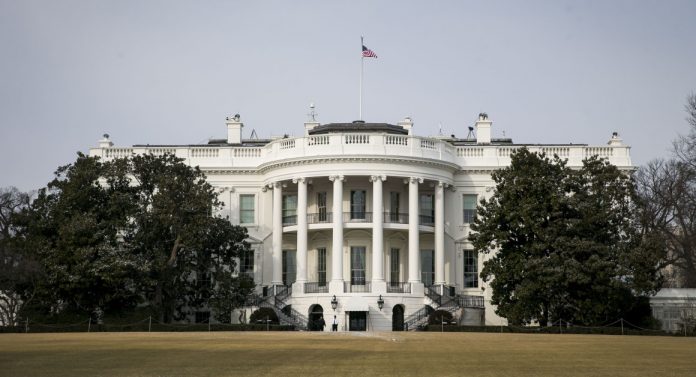WASHINGTON: US lawmakers and the White House have reached bipartisan agreement on a $480 billion emergency package that replenishes a depleted program to help small businesses devastated by the coronavirus crisis, the Senate’s top Republican said Tuesday.
The much-needed job-saving package could pass the US Senate as soon as Tuesday.
It would be the government’s latest massive cash injection to prop up the teetering economy amid struggles to contain a pandemic that has killed 43,000 Americans and left millions jobless. “I welcome this bipartisan agreement and hope the Senate will quickly pass it once members have reviewed the final text,” Senate Majority Leader Mitch McConnell said in a statement.
Earlier Tuesday President Donald Trump called on Congress to swiftly pass the deal, which would re-fund a program that has already helped more than 1.6 million businesses. “I urge the Senate and House to pass the Paycheck Protection Program and Health Care Enhancement Act with additional funding for PPP, Hospitals, and Testing,” Trump tweeted.
Top Senate Democrat Chuck Schumer said earlier that the measure was all but finalized and that the Senate could vote on the deal during Tuesday’s brief session at 4:00 pm (2000 GMT). “There are still a few more I’s to dot and T’s to cross, but we have a deal,” Schumer told CNN. “And I believe we’ll pass it today.”
The measure would then go to the House of Representatives, where leaders said a vote could occur Thursday. It would then head to Trump’s desk for his signature. Late last month, with many shops and restaurants nationwide forced to shutter due to the pandemic, the government launched the PPP to provide $350 billion in what were essentially grants as long as businesses use the funds to pay their workers.
Banks were flooded with requests, and the money quickly ran out. The new tranche would include $320 billion in small business funding, plus $75 billion for hospitals and $25 billion to expand coronavirus testing, McConnell said. Schumer said that to expand testing, “you need a national strategy.” He added that Trump, Treasury Secretary Steven Mnuchin and acting chief of staff Mark Meadows had “agreed to that, to their credit, and it will be in the proposal.” The deal also provides $60 billion in disaster recovery loans and grants, McConnell said.
State funding later
Republicans wanted to pass a measure to fund just the small business program, but Democrats successfully fought to include testing and hospital funding.
Schumer said considerable PPP money will be reserved for minority-run small businesses and those without access to large financial institutions. The deal leaves out a key Democratic demand: extra funding for state and local governments battling the pandemic. Trump said he wants such funding included in “the next Legislative Initiative.”
The 100-member Senate has postponed full sessions until May 4. It could pass the interim package Tuesday in the pro forma session, which usually features few lawmakers but can pass legislation if there is unanimous consent. A vote in the House, also on recess, appears more complicated.
The House is unlikely to pass the job-saving package by unanimous consent and so will have to convene a session where more than half the members attend. A vote in such a session “is likely in the House this week,” possibly Thursday, number two Democrat Steny Hoyer said in a recent letter to members.




